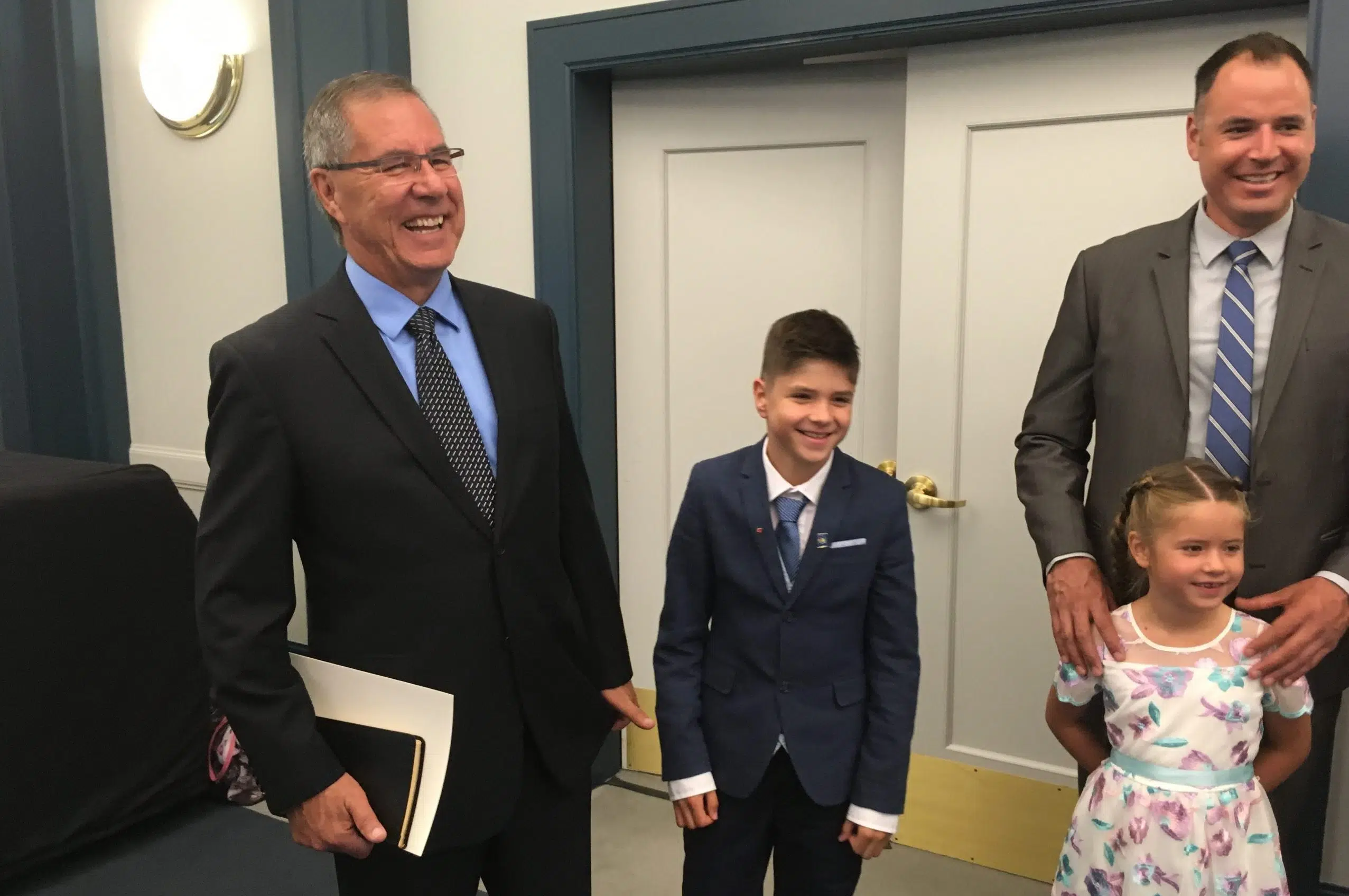During a ceremony at Government House Thursday morning, longtime RCMP veteran Russell Mirasty was sworn in as Saskatchewan’s 23rd lieutenant-governor.
He’s the first Indigenous person to hold the job in the province.
Mirasty replaces the late Thomas Molloy, who died of pancreatic cancer on July 2 while serving in the role.
After Thursday’s swearing-in ceremony, the new lieutenant-governor said he’s honoured to have been appointed to the job, but also that it hasn’t fully sunk in.
“Everybody’s probably more excited than me. It’s just a little disbelief for me and trying to accept that I was headed toward this role,” he said. “I’ve had tremendous support from the family. They’re all excited, and I’m there with them.”
Swearing in ceremony for new #Sask. Lieutenant-Governor Russell Mirasty is now underway in #Regina. pic.twitter.com/BKTWCi40Ho
— Evan Radford (@EvanRadford) July 18, 2019
Mirasty is a member of the Lac La Ronge Indian Band and lives primarily in La Ronge. He wants to continue doing that as he begins working out of Regina, saying he’ll split his time between the capital and the northern town.
He talked about the importance of that.
“We’re all with some of our backgrounds and histories and families and where we grew up; no different for me — but certainly it gives me an added perspective in terms of the province and the communities that are part of this great province. It will be of great benefit,” he said.
Mirasty first joined the RCMP in 1976, spending 36 years with the police force.
He worked his way up to become the chief commander at the RCMP’s “F” Division. Mirasty also worked as its director general of National Aboriginal Policing in Ottawa.
He’ll use his policing experiences in his new role, Mirasty noted, particularly the aspect of meeting new people.
“In my previous life or previous career, I did a lot of that and I think that was a foundation of my approach and I look forward to that,” he explained.
Premier Scott Moe said Mirasty’s First Nations background is an important factor.
“Not only for the action and the conversation around reconciliation, but I think it’s an important step of signifying: ‘How do we work together as Aboriginal communities, as Aboriginal people and the rest of us in this nation?'” Moe elaborated. “This is a step.”











